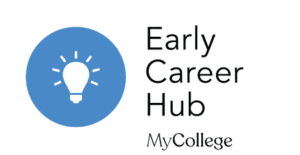What is a ‘knowledge-rich’ curriculum?

In the last few years, there has been a fascinating debate developing around the concept of a ‘knowledge-rich curriculum’. Sometimes this is referred to as knowledge-led or knowledge-based. The debate has been informed by discussions from cognitive scienceThe study of the human mind, such as the processes of thought, memory, attention and perception, such as the role of knowledge in underpinning reading and understanding (Willingham, 2010). It has also been informed by a values-led philosophy based on empowerment through teaching ‘powerful knowledge’ (Young and Muller, 2013). Along with plenty of others, my initial reaction was to reject the idea that a curriculum could be ‘knowledge-rich’; I saw it as a kind of hubristic rebranding of regular good practice. As a science teacher, I’ve always felt that my curriculum was packed with knowledge and, without question, I’ve seen numerous cohorts sit lots of GCSE exams, year after year, each requiring significant knowledge. However, I’m increasingly convinced that a knowledge-rich curriculum is actually an important concept that we ought to embrace.
From my experience working with a range of schools in varying circumstances over the last few years, I would say that not only is this approach often different to the default practice, but it also offers a secure route to the higher standards that we’re continually seeking. Even if it’s not new, at the very least it represents a shift in emphasis with multiple benefits.
What is a knowledge-rich curriculum in principle?
Based on my reading of the debate, I would suggest that there are four components:
Knowledge provides a driving, underpinning philosophy
The grammar of each subject is given high status. Here, ‘grammar’ relates to the concepts explored by Martin Robinson in Trivium 21c (Robinson, 2013) – the knowledge content and traditions within subject disciplines. In a knowledge-rich curriculum, the specifics of what we want students to learn matter and subject traditions are respected. Skills and understanding are seen as forms of knowledge and it is understood that there are no real generic skills that can be taught outside of specific knowledge domains. Acquiring powerful knowledge is seen as an end itself; there is a belief that we are all empowered through knowing things and that this cannot be left to chance. There is also a sense that the creative, ‘rounded and grounded’ citizens we all want to develop – with a host of strong character traits – will emerge through being immersed in a knowledge-rich curriculum.
The knowledge content is specified in detail
Units of work are supported by statements that detail the knowledge to be learned – something that can be written down. We do not merely want to ‘do the Romans’; we want children to gain some specified knowledge of the Romans as well as a broad overview. We want children to know specific things about plants and about the Amazon Rainforest, WWII, Romeo and Juliet and climate change. We want children to have more than a general sense of a topic through vaguely remembered knowledge encounters;in addition to a range of memorable, enriching experiences from which important tacit knowledge is gained,we want them to amass a body of specific declarative and procedural knowledge – not ad hoc but planned. This runs through every phase of school; units of work are not defined by headings but by details: e.g. beyond the ‘environmental impact of fossil fuels’, the specific impacts are detailed.
Knowledge is taught to be remembered, not merely encountered
A good knowledge-rich curriculum embraces ideas from cognitive science about memory, forgetting and the power of retrieval practice. Our curriculum is not simply a set of encounters from which children form ad hoc memories; it is designed to be remembered in detail – to be stored in our students’ long-term memories so that they can later build on it, forming ever wider and deeper schemas. This requires approaches to curriculum planning and delivery that build in spaced retrieval practice, formative low-stakes testing and plenty of repeated practice for automaticity and fluency.
Knowledge is sequenced and mapped deliberately and coherently
Beyond the knowledge specified for each unit, a knowledge-rich curriculum is planned vertically and horizontally, giving thought to the optimum knowledge sequence for building secure schemas – a kinetic model for materials; a timeline for historical events; a sense of the canon in literature; a sense of place; a framework for understanding cultural diversityThe recognition of individual differences in terms of race, ethnicity, gender, sexual orientation, socio-economic status, physical ability, religious beliefs and other differences and human development and evolution. Attention is also given to known misconceptions, and there is an understanding of the instructional tools needed to move students from novice to expert in various subject domains.
Importantly, these four elements lead to a curriculum far more expansive than a reductive set of knowledge statements. A knowledge-rich curriculum is packed with experiences and is driven by a strong set of values about what matters; it has soul, moral purpose, humanity.
What is a knowledge-rich curriculum in practice?
The best way to attack this is through some examples:
Exhibit A: The Romans
Imagine Year 8s looking back to when they ‘did the Romans’ in Year 4. What would we want them to remember? They might recall their museum trip, something about togas and what Roman soldiers looked like. They might have a general sense that Romans had an empire a long time ago. In a knowledge-rich curriculum they would remember all of this but would also be expected to know who Julius Caesar was, the terms empire, emperor, centurion, amphitheatre, aqueduct; dates placing the Romans in time in relation to Jesus and 1066 and be able to identify key Roman sites in the UK and Europe. This would be part of a long-term plan ensuring students return to Roman history beyond Year 4 such that their knowledge would be built on, not left behind.
Exhibit B: Parliament Hill Science
At this Camden school, the science department has developed a superb set of study guides in booklet form. More detailed than a knowledge organiser but stripped down from what might be in a text-book, the booklets contain embedded quizzes used to test them on their knowledge. They are seen in advance so that students can learn the form in which knowledge is sometimes expressed. It guides their learning. Students are asked to learn the material after being taught it and then take the quizzes without any study aids. Their theory is that, if students can’t get the simple factual recall questions right, they have no chance of then getting the ‘application to new contexts’ questions right. This embedded quizzing builds lower attaining students’ confidence, knowledge and study skills and has paid dividends.
Exhibit C: Trial by Ordeal
Teaching the GCSE History theme study on Crime and Punishment, you might show the relevant BBC Bitesize video. It’s a colourful story full of examples, facts, concepts and gory details, feeding wonderful engaging discussions. But, days and weeks later, what would students remember? For certain, the weakest students will have the worst notes and, in all likelihood, the lowest level of recall. It’s not enough. In a knowledge-rich approach, we don’t leave this to chance. Alongside the discussion, we make the note-making absolutely explicit. These are the key facts about trial by ordeal that everyone must know. You control it; you are precise about it.
Exhibit D: Sequenced knowledge of Motors.
If I teach motors I want to make sure that the knowledge builds securely. Early on at KS3, through demonstrations and practical tasks, I want students to build their tacit experiential knowledge of the key phenomena: magnetic attraction and repulsion, the idea of ‘field strength’; forces; current – each with direction and magnitude; the idea that phenomena interact. We would focus on changes of direction and the simple but magnificent awe and wonder that motors work at all in our universe. Later, as part of a spiral curriculum, avoiding cognitive overload and building on prior knowledge, I need students to understand and use the formula F = BIL and Fleming’s left hand rule. I need them to learn the equation by heart and practise using it and manipulating it. I build the sequence carefully, deliberately with a focus on practice, recall and schema-building.
Is this new? To many teachers and in many schools, I think it is – especially once the cognitive science combines with the idea of subject grammar. It’s way beyond reductive ideas about rote learning and regurgitating facts for no purpose. It’s about ensuring that all students always have a secure knowledge platform, allowing them to reach the next level. In truth, it doesn’t really matter whether we did this before… some of us will have, some won’t, and that will depend on context, subject, phase and which decade we started teaching in. The point is that we should all be doing it now. It’s actually rather exciting!
Blogs for further reference
Last accessed 2018:
- Ben Newmark. Planning a knowledge curriculum.
- Christine Counsell. The dignity of the thing.
- Clare Sealy. Memory not memories – teaching for long term learning.
- Debra Kidd. A rich curriculum.
- Jon Brunskill. I’m bringing knowledge back.
- Mark Enser. Knowledge in the classroom.
- Michael Fordham. Is it more important to understand than to know?
- Rebecca Foster and Claire Hill. On our #rEDDurrington presentation: Practical approaches to bringing research-informed practice to the classroom, the department and whole school.
- Rosalind Walker. My #rEDBrum talk: The nature of school science knowledge.
- Summer Turner. Pub quiz or published? What are the aims of a knowledge-rich curriculum?
- Tom Sherrington. FACE It. A formula for learning.
References










